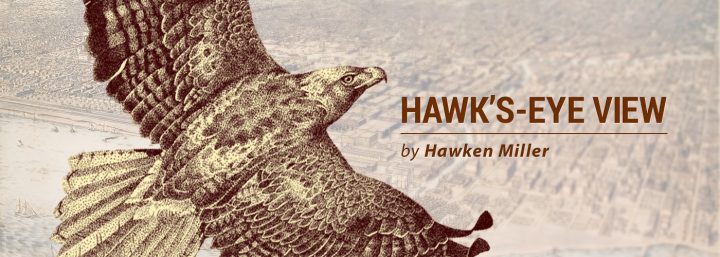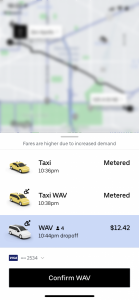UberWAV Is the Next Best Thing for Accessible Transportation
Written by |

I discovered something different about Washington, D.C. when I moved there for the summer: wheelchair-accessible Ubers are everywhere. Los Angeles, where I come from, has a dearth of accessible Ubers. Having the ability to take an Uber with my power chair opens up a range of possibilities for my continued independence.
When my parents helped me move into my new apartment in D.C., we took an accessible Uber to Alexandria, Virginia, where we had dinner with some family friends. Both families have boys with Duchenne muscular dystrophy, and they were delighted to learn that Uber now has an accessible option. It’s freeing to go wherever I want (within reason) without having to worry about driving there or using public transit. It’s extremely helpful for me because I am in D.C. temporarily, and bringing our accessible vehicle across the country for three months isn’t feasible.
There’s room for other people to ride along, too. My parents sat in the third row of the van, and there’s space for a third passenger in the front seat. If I take an Uber in Los Angeles, I have to bring my secondary, smaller, and less comfortable scooter. I found it challenging to communicate how to collapse my scooter, and I felt bad for making my friends wait. With Uber’s WAV service, the process is relatively seamless.
Join our MD forums: an online community especially for patients with Muscular Atrophy.
I’ve had positive interactions with every driver who has picked me up so far. One woman smiled the entire ride and expressed her gratitude at being able to transport people who needed it. We even had a chat about our shared faith in Christ.
Uber contracts with transportation services company MV Transportation to provide its WAV service. According to an article in New Mobility magazine, “All the WAV vehicles added to the Uber platform by MV Transportation will continue to be owned and operated by MV, with drivers who have been trained in wheelchair securement and how to assist passengers with disabilities.” These conditions allow for a professional experience, and the best part is that the price of this service is comparable to that of UberX.
UberASSIST and UberWAV fall under the remit of UberACCESS, which launched in October 2014. A couple of lawsuits filed under Title III of the Americans with Disabilities Act after the 2014 launch have helped expand the program to more cities.
However, I’ve found that Uber still has areas where it could improve its WAV service. I usually have to wait about 30 minutes for an accessible vehicle because there aren’t many available. So, if you decide to use the service, allow sufficient time to get to your destination.
I also have noticed that the shoulder strap in some WAV vehicles is not adjustable to accommodate the size and shape of the passenger and their mobility equipment. And, unfortunately, the program is only available in a limited number of cities in the U.S.
I understand that not everyone can afford an Uber ride. If you can’t, check to see if your city’s Metro system has an Access option, similar to the service available in L.A.
While most cab companies have accessibility options, they are significantly more expensive and would be my last resort.
I’m beginning to feel confident as these alternative forms of transportation pop up for people with disabilities. These services allow us to be more integrated into society and enable us to go out and see the world.
***
Note: Muscular Dystrophy News is strictly a news and information website about the disease. It does not provide medical advice, diagnosis or treatment. This content is not intended to be a substitute for professional medical advice, diagnosis, or treatment. Always seek the advice of your physician or another qualified health provider with any questions you may have regarding a medical condition. Never disregard professional medical advice or delay in seeking it because of something you have read on this website. The opinions expressed in this column are not those of Muscular Dystrophy News or its parent company, Bionews Services, and are intended to spark discussion about issues pertaining to muscular dystrophy.






Ejiegbu Christian
Well done guys. I do not know when we will have this type of services in Nigeria so my son can move freely on wheelchair.